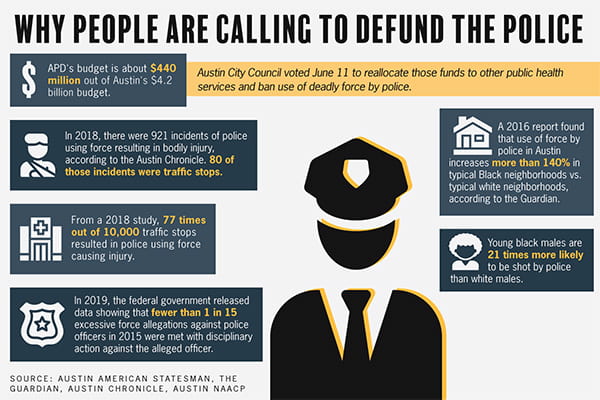The relationship between law enforcement and the communities they serve is complex and often fraught with tension. A pervasive sense of why do people hate police exists in many societies, fueled by a confluence of factors that erode public trust and foster negative perceptions. This article delves into the root causes of police mistrust, exploring the impact of police brutality, racial profiling, lack of accountability, and systemic racism. Furthermore, we examine the growing calls for police reform and the ongoing efforts to bridge the divide between law enforcement and the communities they are sworn to protect.
This exploration will examine the historical and societal factors contributing to why do people hate police, analyzing the cyclical nature of mistrust and its detrimental effects on both individuals and communities. We will also discuss potential solutions and strategies aimed at fostering a more equitable and just relationship between law enforcement and the public.
Police Brutality
Police brutality, the excessive and unwarranted use of force by law enforcement officers, is a deeply disturbing issue that has fueled widespread anger and distrust towards police. Instances of excessive force, often disproportionately targeting marginalized communities, have been widely documented and captured on video, sparking national outrage and protests.
The psychological and physical trauma inflicted by police brutality can have long-lasting consequences for victims and their families. Beyond the immediate harm, it erodes the sense of safety and security within communities, creating a climate of fear and resentment towards law enforcement. The perception that police officers are not held accountable for their actions further exacerbates this mistrust, leading to a breakdown in the relationship between the police and the public.
Addressing police brutality requires a multifaceted approach that includes comprehensive training programs, stricter use-of-force policies, independent investigations of misconduct allegations, and meaningful consequences for officers who violate the law.
The Cycle of Violence
Police brutality often perpetuates a cycle of violence. When communities experience repeated instances of excessive force, it can lead to increased tension, anger, and distrust towards law enforcement. This, in turn, can make it more difficult for police officers to effectively serve and protect their communities, as residents may be less likely to cooperate with them or report crimes.
Breaking this cycle requires building trust and fostering positive relationships between law enforcement and the communities they serve. This can be achieved through community policing initiatives, increased transparency and accountability, and a commitment to addressing the root causes of crime, such as poverty, inequality, and lack of opportunity.
Racial Profiling

Racial profiling, the discriminatory practice of targeting individuals for suspicion of crime based solely on their race or ethnicity, is a pervasive issue that has contributed significantly to why do people hate police. This discriminatory practice undermines the fundamental principles of justice and equality, eroding public trust and fueling feelings of resentment and anger towards law enforcement.
Racial profiling has a devastating impact on individuals and communities. It can lead to wrongful arrests, harassment, and violence, reinforcing negative stereotypes and perpetuating systemic racism. The constant fear of being targeted based on their race or ethnicity creates a climate of anxiety and insecurity, particularly for members of marginalized communities.
Addressing racial profiling requires a comprehensive approach that includes:
- Data collection and analysis: Tracking and analyzing police stops, searches, and arrests to identify patterns of racial bias.
- Training and education: Providing law enforcement officers with implicit bias training to raise awareness of unconscious prejudices and promote fair and impartial policing.
- Community engagement: Building trust and collaboration between law enforcement and communities of color through dialogue, outreach, and joint problem-solving initiatives.
Lack of Accountability
A lack of accountability within law enforcement agencies contributes significantly to why do people hate police. When officers who engage in misconduct are not held responsible for their actions, it sends a message that such behavior is tolerated, further eroding public trust and confidence in the justice system.
The consequences of a lack of accountability can be severe. It can lead to a culture of impunity, where officers feel emboldened to engage in misconduct without fear of repercussions. This can create a climate of fear and resentment within communities, as residents may feel powerless to hold law enforcement accountable for their actions.
To address this issue, it is essential to:
- Establish independent oversight bodies: Create civilian review boards or other independent entities to investigate allegations of police misconduct and recommend disciplinary action.
- Strengthen use-of-force policies: Implement clear and comprehensive use-of-force policies that are consistently enforced and that prioritize de-escalation and the protection of civilian life.
- Increase transparency: Make police records, including disciplinary records, more accessible to the public to promote accountability and build trust.
Systemic Racism

Systemic racism, the deeply ingrained patterns of discrimination and inequality that permeate institutions and society as a whole, plays a significant role in why do people hate police. This systemic bias manifests in various ways within law enforcement, contributing to racial disparities in policing practices, arrests, and sentencing.
The historical legacy of slavery, segregation, and discrimination has created a system where people of color are disproportionately targeted by law enforcement. This can lead to a sense of alienation and distrust towards police, as individuals may feel that the system is rigged against them.
Addressing systemic racism requires a comprehensive and multifaceted approach that includes:
- Diversifying law enforcement: Increasing the representation of people of color within police departments to better reflect the communities they serve.
- Addressing implicit bias: Providing law enforcement officers with training to recognize and mitigate their own unconscious biases.
- Reforming the criminal justice system: Addressing racial disparities in sentencing, policing practices, and the use of incarceration.
Calls for Police Reform
The widespread recognition of the issues surrounding police brutality, racial profiling, lack of accountability, and systemic racism has led to a growing movement calling for police reform. This movement encompasses a wide range of proposals aimed at addressing these systemic problems and building a more just and equitable relationship between law enforcement and the communities they serve.
Some key calls for police reform include:
- Demilitarization of police: Reducing the use of military-grade equipment and tactics by law enforcement agencies.
- Community policing: Emphasizing proactive engagement with communities, building trust, and addressing the root causes of crime.
- Independent investigations of police misconduct: Establishing independent bodies to investigate allegations of police brutality and other misconduct.
- Increased transparency and accountability: Making police records, including disciplinary records, more accessible to the public.
Conclusion
The issue of why do people hate police is complex and multifaceted, rooted in historical injustices, systemic racism, and a lack of accountability within law enforcement. Addressing this deep-seated mistrust requires a comprehensive and sustained effort that involves systemic change, police reform, and a commitment to building trust and collaboration between law enforcement and the communities they serve. By acknowledging the root causes of police mistrust and working towards meaningful solutions, we can create a more just and equitable society for all.



